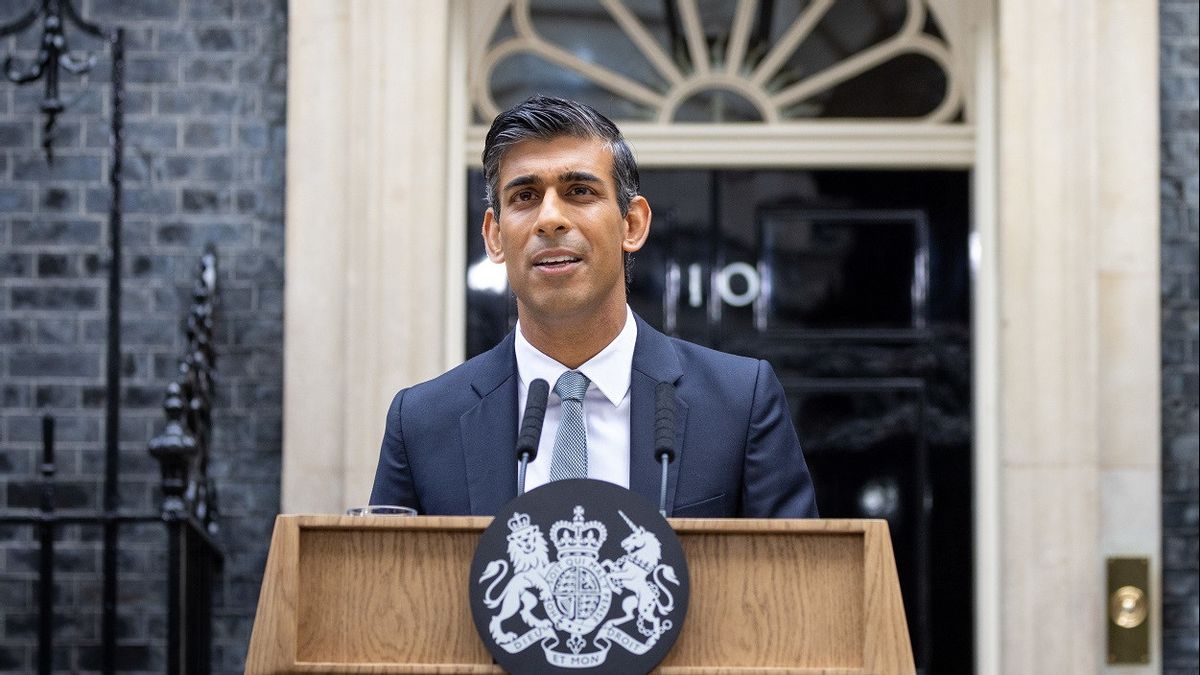JAKARTA - British Prime Minister Rishi Sunak said on Monday the so-called 'golden era' of relations with China had ended, saying Beijing's systemic challenges to Britain's interests and values were getting more acute.
In his first foreign policy speech, PM Sunak said Britain's approach to China needed to develop, with Beijing " consciously competing for global influence by using all the power levers of the country".
"Let us be clear, the so-called 'golden era' has ended, along with the naive idea that trade will lead to social and political reforms," said PM Sunak in London, referring to George Osborne's former finance minister's 2015 description of China-English relations. November 28.
Some in the Conservative Party criticized Sunak, considering it less hawkish to China than its predecessor Liz Truss. Last year when he became finance minister, he called for China's nuanced strategy to balance human rights issues, while expanding economic relations.
However, a planned meeting between PM Sunak and Chinese President Xi Jinping at this month's G20 summit in Bali failed, followed by London banning Chinese-made security cameras from sensitive government buildings last week.
"We recognize China poses a systemic challenge to our values and interests, an increasingly acute challenge as it moves towards greater authoritarianism," he said, referring to the BBC's statement that one of its journalists had been attacked by Chinese police.
"Of course, we cannot simply ignore China's significance in world affairs, for global economic stability or problems such as climate change. The US, Canada, Australia, Japan, and many others also understand this," he explained.
PM Sunak said, under his leadership the UK would not choose the status quo, would face international competitors "not with great rhetoric but with strong pragmatism".
Regarding Ukraine, he said the government would maintain military aid to Kyiv next year, maintaining strong support offered by former prime ministers Boris Johnson and Truss.
"So don't hesitate, we will support Ukraine as long as necessary. We will maintain or increase our military aid next year. And we will provide new support for air defenses," he said.
In September, Britain said it was the second largest military donor to Ukraine after the United States, providing 2.3 billion pounds (USD 2.8 billion) in aid this year.
PM Sunak added that Britain needs to take the same long-term approach as its enemies and competitors such as Russia and China.
"In facing these challenges, short-term thinking or wishful thinking will not be enough. We cannot rely on Cold War arguments or approaches, or simplyOSing about the past," he said.
The English, Chinese, Japanese, Arabic, and French versions are automatically generated by the AI. So there may still be inaccuracies in translating, please always see Indonesian as our main language. (system supported by DigitalSiber.id)













